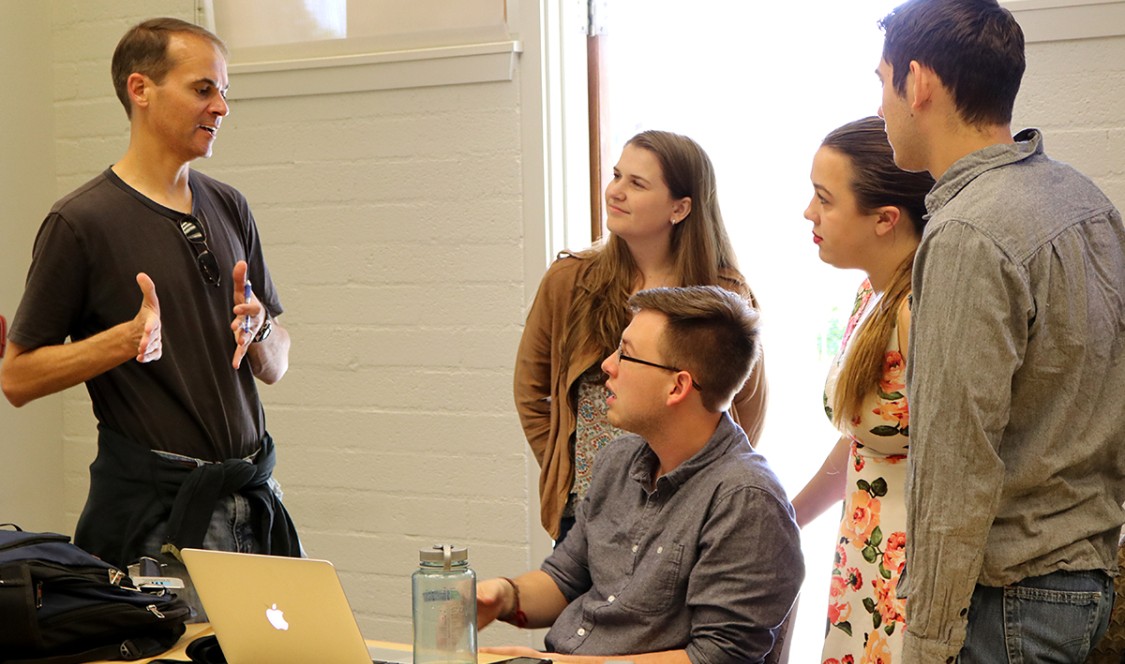Daniel Krauss, a professor of psychology at Claremont McKenna College, has co-authored an article titled “Capital Jurors in an Era of Death Penalty Decline” in the latest edition of The Yale Law Journal.
For more than a century, The Yale Law Journal has been at the forefront of legal scholarship, sparking conversation and encouraging reflection among scholars and students, as well as among practicing lawyers and sitting judges and justices. The journal strives to shape discussion of the most important and relevant legal issues through a rigorous scholarship selection and editing process.
“It is a strong outlet for this kind of research [on the death penalty], and one that is likely to get the research noticed by the best people in the field as well as by policymakers,” Krauss said. “The Death Penalty Information Center has already included a summary of our research on its website.”
Apart from the prestige of having the research published in the journal and the erudition of the research itself, Krauss’ article underscores something vitally important that is often overlooked (although not by him) – the synergy and teamwork needed between the authors of scholarly treatises and their researchers. In this case, CMC students John “Kai” Kellerman ’18, Brendan Busch ’18 and Grace Wilson ’19, as well as Kailey Lawson ’18 from Pomona College, assisted Krauss.
“Like with most psychology professors, my students are integral in my research,” Krauss said. “My lab, composed of four students, was involved in the collection of the data. They were the ones at the courthouse who presented the jury pool sample with the questions we asked them over a period of several weeks, and they had the joy of trying to get the jurors to participate and drive home on [California State Route] 57 at rush hour.”
Krauss’ psychology and law lab explores the ways that psychological phenomena can both influence and help one understand proceedings within the criminal justice system. His lab students helped collect the data and run some of the analyses as well as read and comment on various drafts of the paper as it was revised.
“The research experience I have gained working with Prof. Krauss has been extremely beneficial, both in my academic and professional lives,” Lawson said. “Not only have our research discussions helped foster my critical thinking abilities and practice communicating my ideas effectively, but the practical hands-on experiences have allowed me to apply to graduate school straight out of college.”
Lawson said that most of the work she did for the death penalty research took place during the summer of 2016 and into the fall semester – about five to six months of work.
“As for the death penalty research with jurors, I was part of the direct data collection, which included going to the Santa Ana courthouse multiple times a week to recruit and run participants,” she said. “I also assisted with data entry once we collected data, and ran some of the preliminary statistical analyses. Lastly, I helped to edit the final paper. We always have ongoing projects in the lab, as well as many more theoretical conversations about different ways to implement experiments within the psychology and law communities, and what methodology works for the most valid and reliable results.”
Krauss said that the most significant finding to come out of the research is that the number of jurors sampled who were morally opposed to the death penalty – and thus were not eligible to serve on a case involving the death penalty – was significantly higher than data from 30 years ago showed.
“This is not surprising given many public opinion surveys, but we were still surprised by the size of the change,” he said. “In the original research noted in the United Supreme Court case Lochart v. McCree (1986), the number of folks excused was between 10 and 20 percent Our update was more than one out of three, and in an area of the country where you would expect it to be lower than other areas. So, more than one third of jurors could not currently serve on a jury in a case that might involve the death penalty. The research also is timely given California’s dual referendums on this issue in the last election.”
In Krauss’ view, it’s difficult to catalog all the benefits of including students in research.
“It is the hands-on experience that epitomizes why students come to a school like CMC,” he said. “While it is one thing to read about a research study in class, it is quite another for students to follow through the complete process of conceptualizing a study, creating materials, collecting data, analyzing data, and writing up the finished product.
“If they are interested in graduate school, or even if they are not, they get to more fully understand the process of research and scholarship, and be part of it in a meaningful way. These are not experiences you can get as an undergraduate at most other schools in the country. From my perspective it makes me a better researcher, because all along the way I have to justify and teach the students why I’m doing things the way I’m doing them, and think about the educational messages I’m providing for them at the same time. If the students are interested in graduate school, they also may get a publication – I've published more than 10 articles with various student authors over the years – or an experience they would not otherwise have had.”

